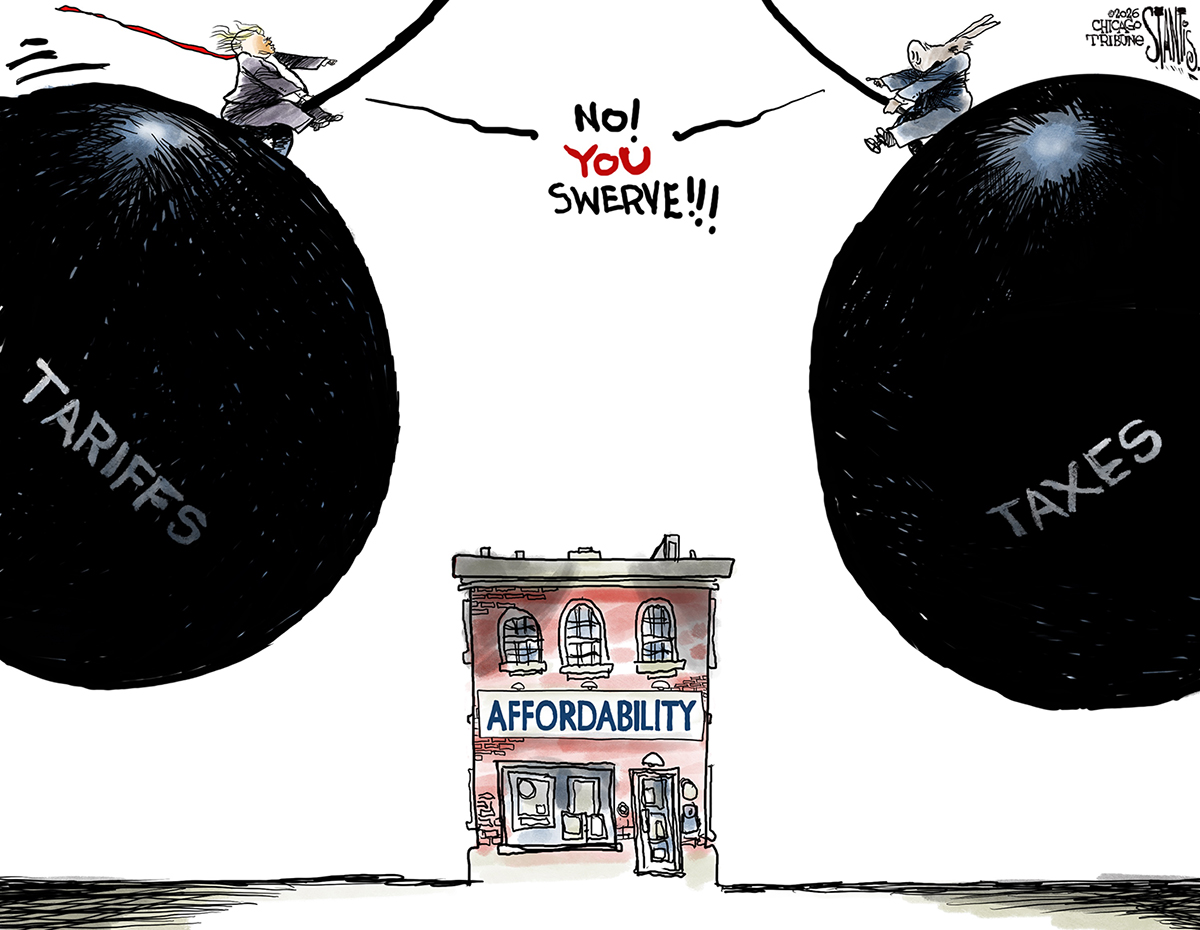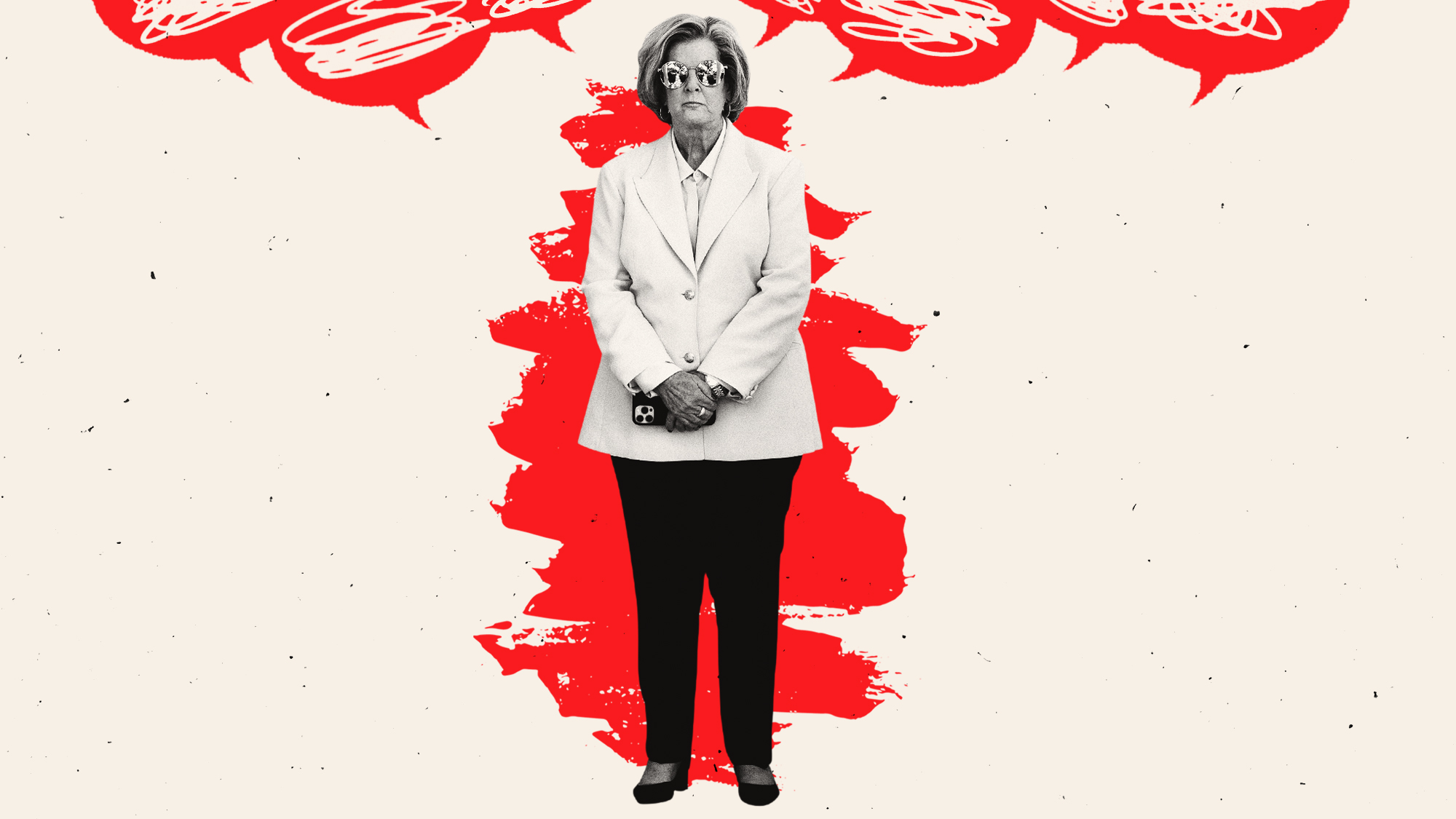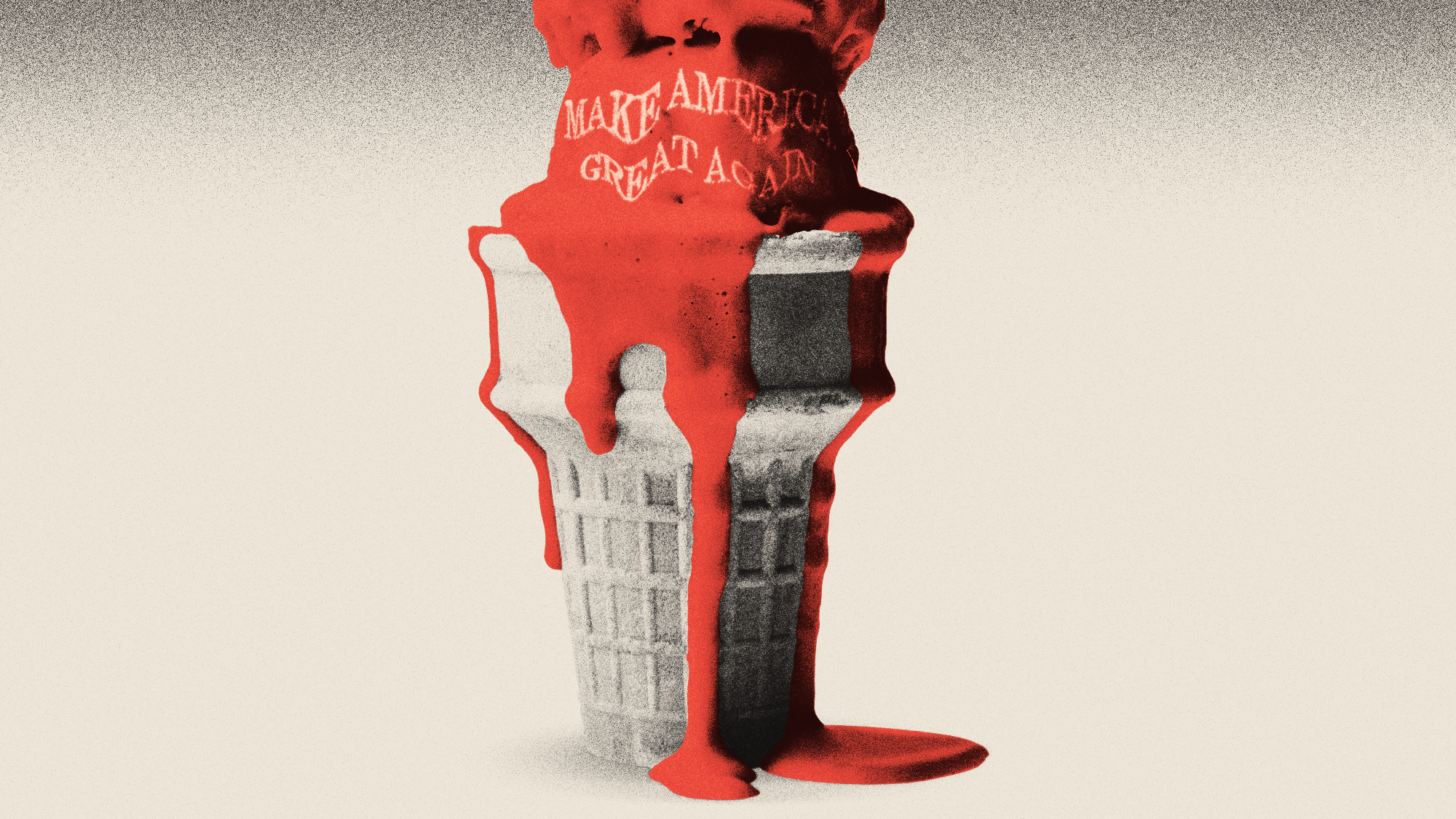What role did disinformation play in Southport riots?
Far-right groups turn violent after false details regarding the attacker's identity are spread online

As families mourned the death of three young girls murdered in a knife attack at a Taylor Swift-themed dance class in Southport, riots broke out in the town fuelled by disinformation about the suspect's identity.
Just hours after police were called to the scene of the mass stabbing, in which eight other children and two adults were also injured, a riot outside a mosque in Southport led to more than 50 officers being injured in violent clashes. Several of them needed hospital treatment.
Footage showed crowds of men "chanting and throwing bricks at riot police who held shields to protect against incoming projectiles as a police van was set alight and other fires burned nearby," said The Independent. At least one rioter was "identified by antifascists Red Flare as an alleged member of the far-right Patriotic Alternative group".
The Week
Escape your echo chamber. Get the facts behind the news, plus analysis from multiple perspectives.

Sign up for The Week's Free Newsletters
From our morning news briefing to a weekly Good News Newsletter, get the best of The Week delivered directly to your inbox.
From our morning news briefing to a weekly Good News Newsletter, get the best of The Week delivered directly to your inbox.
The "outpouring of rage" in the Merseyside town appeared to come "after disinformation about the attacker's identity was amplified" by social media and "seen by millions" online, said the news site.
What did the commentators say?
"Information abhors a vacuum," said Sky News. So when police and media – for legal reasons – put out only a few details about the 17-year-old Cardiff-born attacker, now named in court as Axel Rudakubana, "misinformation rushed in instead".
The disinformation started almost immediately after the news broke on Monday, when accounts on X "quickly began promoting false narratives about the attacker's nationality and religion". One account with more than 360,000 followers, European Invasion, said the suspect was "a Muslim immigrant", with the tweet earning more than four million impressions. Controversial influencer Andrew Tate further amplified the false narrative, claiming the attacker was an "illegal migrant".
But "at the heart" of the spread of online disinformation was a "curious" clickbait account called Channel 3 Now, which appears to be run from Pakistan and the US, and which claimed to be a "trusted source of accurate news", said The Times. Only a few hours after Merseyside police confirmed a major incident, the account "posted false claims that a named asylum seeker on an MI6 watchlist was responsible".
A free daily email with the biggest news stories of the day – and the best features from TheWeek.com
In an "already febrile online environment" the news was further "amplified by high-profile accounts including the Russian state broadcaster RT". It was also "disseminated on Facebook, Twitter/X and far-right channels on Telegram called Reality Reports, Dismantling the Cabal and Freedom Warriors".
A UN-created group that fights online disinformation, called Tech Against Terrorism, warned that the "chain of events could be a reflection of nation-state disinformation efforts feeding extremism to destabilise the UK", said the paper.
While some of the accounts sharing disinformation seemed to belong to real users based in the UK, many "had the hallmarks of inauthentic accounts", which can be "automated or run by groups aiming to manipulate the online debate", said the BBC. And many of these accounts "have a track record of posting only divisive content about issues like immigration".
But the wave of disinformation "isn't just about pushing political agendas", said the broadcaster. "Tragedies like this can also be exploited online to accumulate likes, views and follows – which in turn can be monetised." X now allows its paid blue-tick users to earn ad revenue for their posts, incentivising paid accounts to "post more controversial or sensational content to boost their views".
This "seems to have had an effect on how attacks such as Southport are discussed in the hours and days after they have happened". These kinds of online "frenzies" are becoming "more frequent and intense since the changes to X".
What next?
Far-right groups had been "agitating for protest since the evening of the stabbings", said The Times.
Groups linked to the English Defence League (EDL) and white supremacist movement Patriotic Alternative "mobilised and shared information" about a rally taking place outside a local mosque on social media and Telegram chat groups. The rally soon erupted into violence with "more than 50 police officers injured as rioters chanted Islamophobic slurs" and former EDL leader Tommy Robinson's name.
Merseyside police called in support from forces across the region "to try to avoid a second night of rioting", but far-right groups were said to be planning a further rally for Saturday afternoon, said the paper. Police have put in place Section 60 orders, giving officers authority to stop and search individuals who they believe may be "carrying a weapon or engaging in criminality".
Rioting and unrest have also broken out in several other towns and cities including London, Hartlepool and Aldershot.
Sorcha Bradley is a writer at The Week and a regular on “The Week Unwrapped” podcast. She worked at The Week magazine for a year and a half before taking up her current role with the digital team, where she mostly covers UK current affairs and politics. Before joining The Week, Sorcha worked at slow-news start-up Tortoise Media. She has also written for Sky News, The Sunday Times, the London Evening Standard and Grazia magazine, among other publications. She has a master’s in newspaper journalism from City, University of London, where she specialised in political journalism.
-
 Political cartoons for January 18
Political cartoons for January 18Cartoons Sunday’s political cartoons include cost of living, endless supply of greed, and more
-
 Exploring ancient forests on three continents
Exploring ancient forests on three continentsThe Week Recommends Reconnecting with historic nature across the world
-
 The rise of the spymaster: a ‘tectonic shift’ in Ukraine’s politics
The rise of the spymaster: a ‘tectonic shift’ in Ukraine’s politicsIn the Spotlight President Zelenskyy’s new chief of staff, former head of military intelligence Kyrylo Budanov, is widely viewed as a potential successor
-
 Will Democrats impeach Kristi Noem?
Will Democrats impeach Kristi Noem?Today’s Big Question Centrists, lefty activists also debate abolishing ICE
-
 Do oil companies really want to invest in Venezuela?
Do oil companies really want to invest in Venezuela?Today’s Big Question Trump claims control over crude reserves, but challenges loom
-
 What is China doing in Latin America?
What is China doing in Latin America?Today’s Big Question Beijing offers itself as an alternative to US dominance
-
 Why is Trump killing off clean energy?
Why is Trump killing off clean energy?Today's Big Question The president halts offshore wind farm construction
-
 Why does Trump want to reclassify marijuana?
Why does Trump want to reclassify marijuana?Today's Big Question Nearly two-thirds of Americans want legalization
-
 Why does White House Chief of Staff Susie Wiles have MAGA in a panic?
Why does White House Chief of Staff Susie Wiles have MAGA in a panic?TODAY’S BIG QUESTION Trump’s all-powerful gatekeeper is at the center of a MAGA firestorm that could shift the trajectory of the administration
-
 Is MAGA melting down?
Is MAGA melting down?Today's Big Question Candace Owens, Tucker Carlson, Laura Loomer and more are feuding
-
 Are Donald Trump’s peace deals unraveling?
Are Donald Trump’s peace deals unraveling?Today’s Big Question Violence flares where the president claimed success